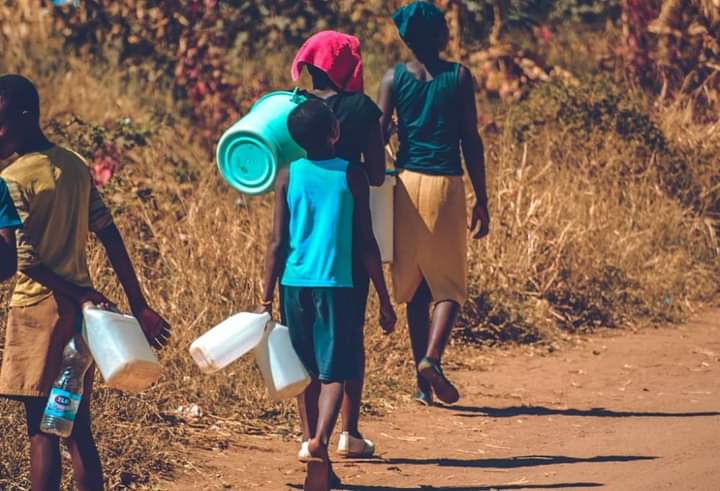ZIMBABWE. Harare. Water shortages in Zimbabwe are posing a serious COVID-19 threat to women and children. There are very few watering holes from which to gather fresh water, forcing groups of people to gather unable to follow social distancing guidelines to prevent the spread of the contagious virus.
Residents in both rural and urban areas have expressed fear of contracting COVID-19. Kudakwashe Mazwi from Chitungwiza said, “There is a need of wait on the water queue since we congest at one borehole. We need more community boreholes as well as tap water to be available all times, so we can maintain social distancing.” In some localities, they have come up with timetables to regulate the number of people gathering.

Chiedza Hukuimwe from Marondera said that on Mondays, Wednesdays, and Fridays they have no access to tap water. “On other days, tap water is available from 2am to 12pm. Then we wait till tomorrow. She added, “We are exposed to the risk as we mix with different people, some of them come from 5km distance villages surrounding Marondera town to get water.”
She also told Transcontinental Times that the authorities should always provide water to citizens so that people can abide by the lockdown regulations. In some places, people sell water for $5 RTGS per bucket.
Lack of financial resources
Another woman from the Marange rural area of Greater Dukwende told Transcontinental Times that the risk is high as rural people do not have preventative kits. “There are no sanitizers at wells and most people do not wear masks,” she said.
The National Coordinator of the Community Water Alliance, Hardlife Mudzingwa, said the challenges are endless, adding that the country does not have enough financial resources to deal with the crisis.
According to Mudzingwa, “The water that wells produce is not meeting the demand of the residents. We also have dilapidated infrastructures which have not been rehabilitated over the years and increased leakages in taps. The majority of women are at risk as they are not adhering to COVID-19 prevention protocols, which include social distancing, wearing masks, as well as using sanitizers.”
To date, Zimbabwe has recorded more than 4,000 cases of COVID-19, with 53 deaths. That includes the Minister of Lands Agriculture, Air Marshall Cde Perrance Shiri who died just one day after being diagnosed.

